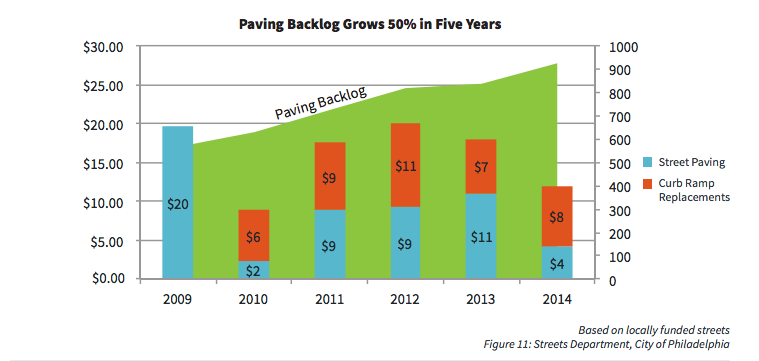
Councilwoman Cindy Bass (D-8)
We were pretty excited to hear that, after the Bicycle Coalition of Greater Philadelphia released our Safer Streets report last week, someone in City Council responded swiftly.
First reported by PlanPhilly, Councilwoman Cindy Bass introduced a resolution on Thursday, Dec. 11, calling for hearings on a Vision Zero plan. She wants to cut traffic injuries in half by 2020—the same number and year we requested in our Better Mobility 2015 draft proposal.
This is a good start.
Vision Zero is a policy that seeks to reduce all traffic deaths in a given area to zero in a given amount of time. In her draft resolution, Bass notes:
It is in both the financial and human interests of the City of Philadelphia to aggressively explore all methods to assure traffic safety, as crashes involving pedestrians, bicyclists, and drivers cost the city about $1 billion per year—each road fatality averaging out to $6.35 million, and each major injury about $1.39 million, when costs associated with hospital bills, funerals, and damaged vehicles are taken into account.
As laid out in our Safer Streets report, 94 people were killed in traffic in 2013—which is unacceptable. To make matters worse, pedestrian deaths are on the rise in Philadelphia. That’s partly an issue of enforcement, but it’s also got a lot to do with Philadelphia’s serious lack of resources and funding for its Streets Department:

Bass adds a number of potential ways to get to Vision Zero could eventually be implemented:
A Vision Zero approach to reduce traffic deaths has been adopted in two cities so far—New York City and San Francisco—and involves a wide variety of methodologies including but not limited to: narrower travel lanes to reduce car speeds, pinched intersections, raised crosswalks, more separated bike infrastructure, lower speed limits, and automated speed enforcement, as well as speed bumps, realizing that specific locations will warrant different strategies to assure traffic safety.
The resolution doesn’t do anything permanent yet. It actually authorizes two committees—the Joint Committees on Streets and Services and Public Safety—to hold hearings on strategies and methods to make this happen. Such policies, as we laid out in Safer Streets, could drastically reduce traffic deaths and make Philadelphia a less chaotic place to commute and travel.

Yes yes yes! I’m amazed and delighted that the councilwoman has proposed this. It’s about time someone on council acted like Philadelphia is a 21st century city that wants to be successful.